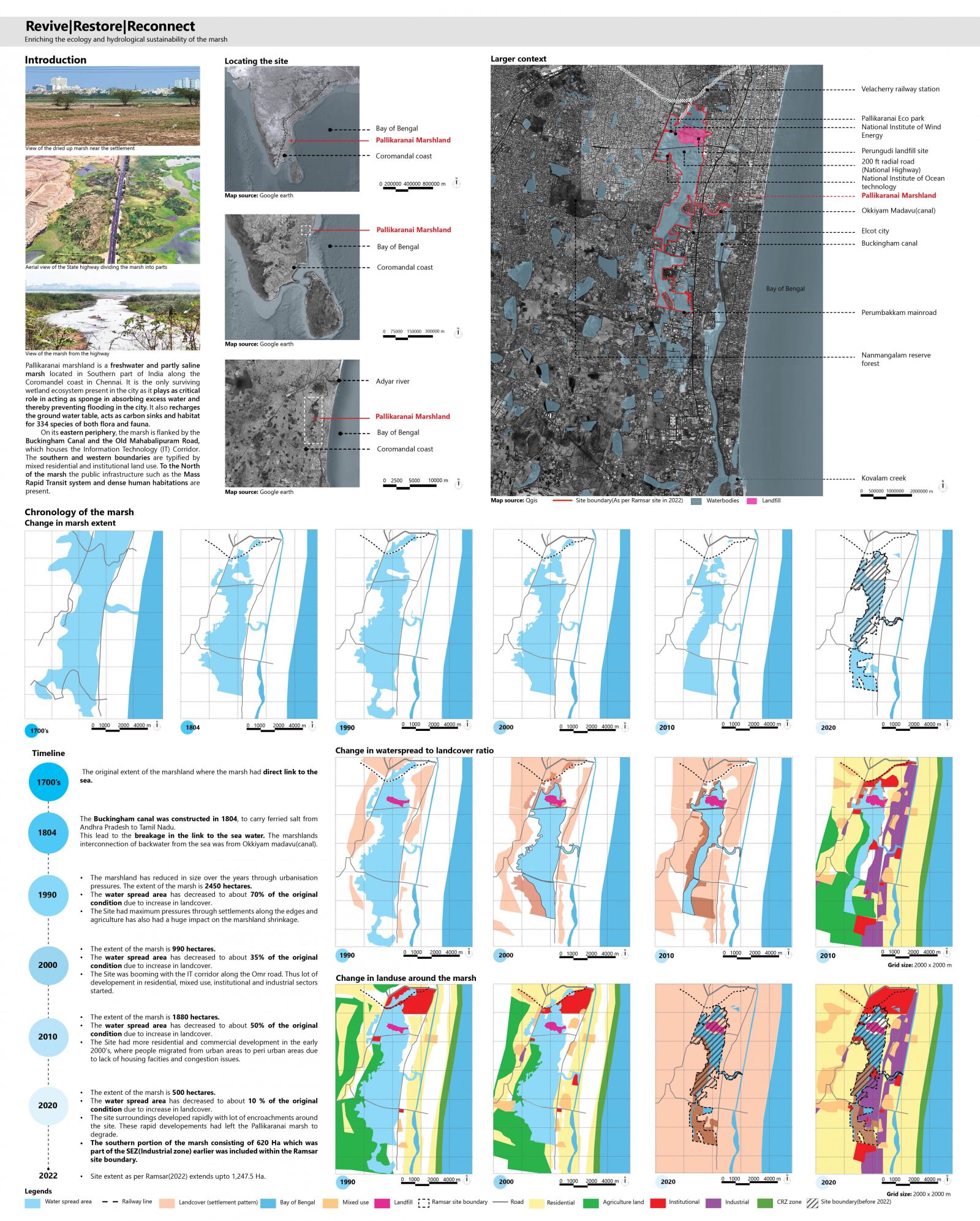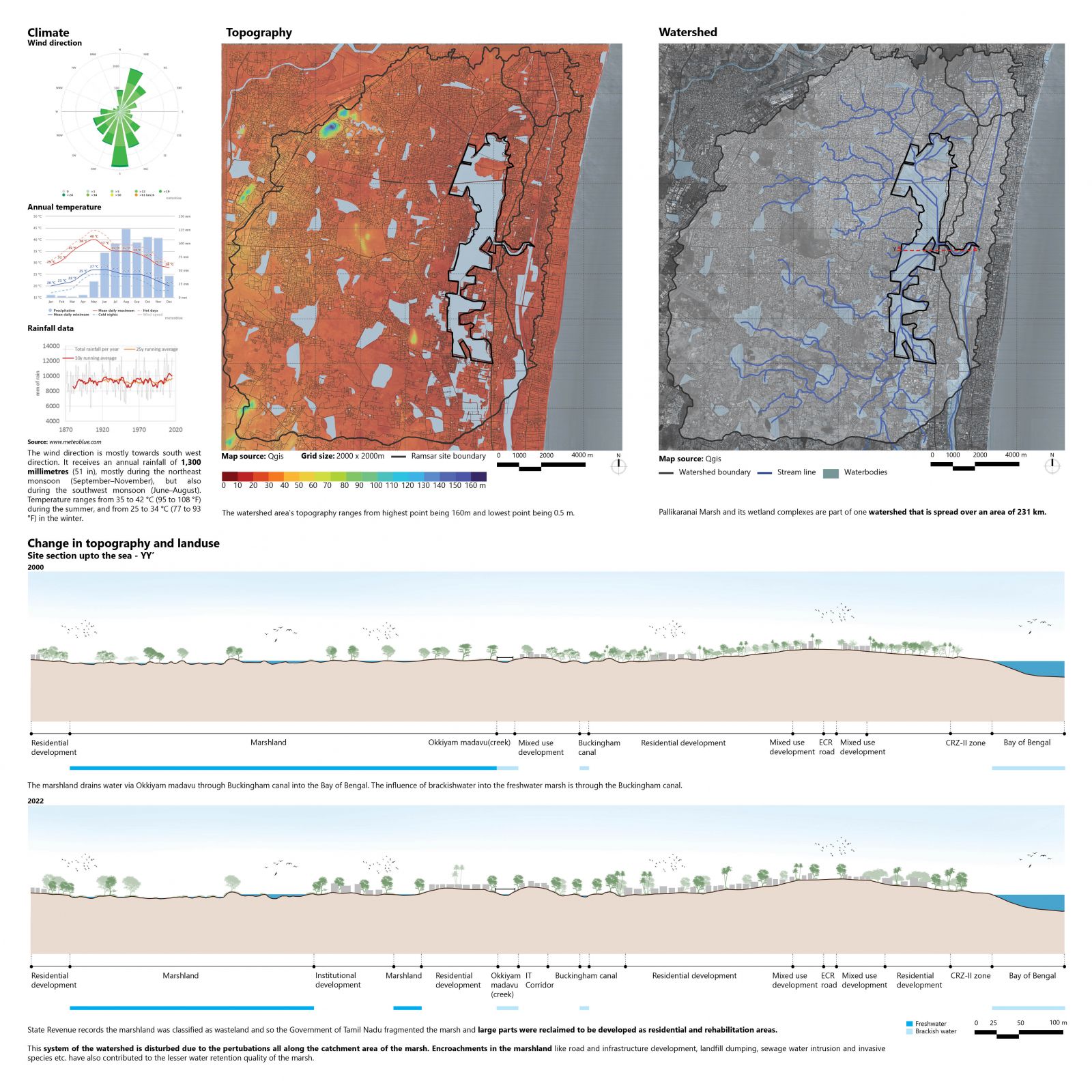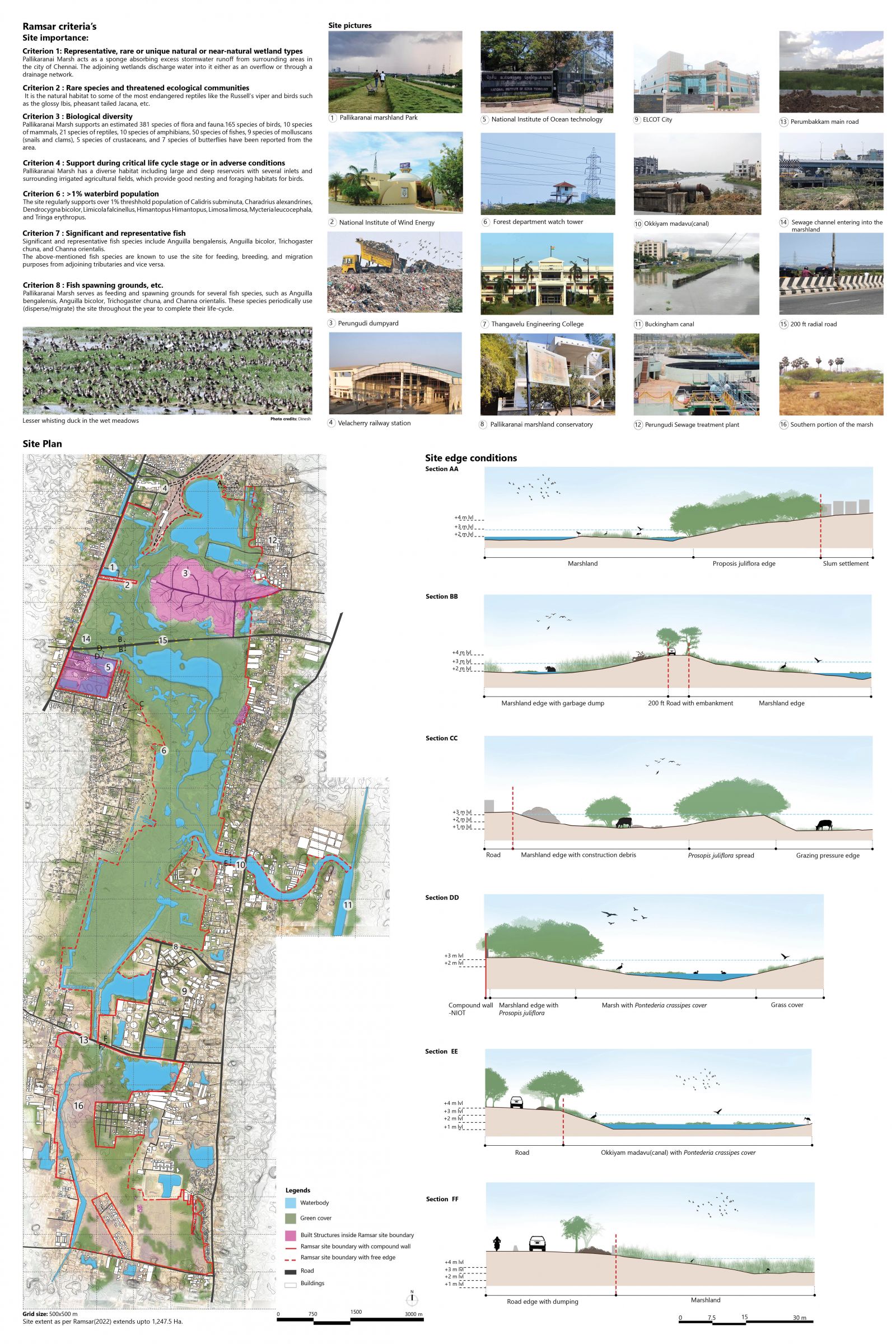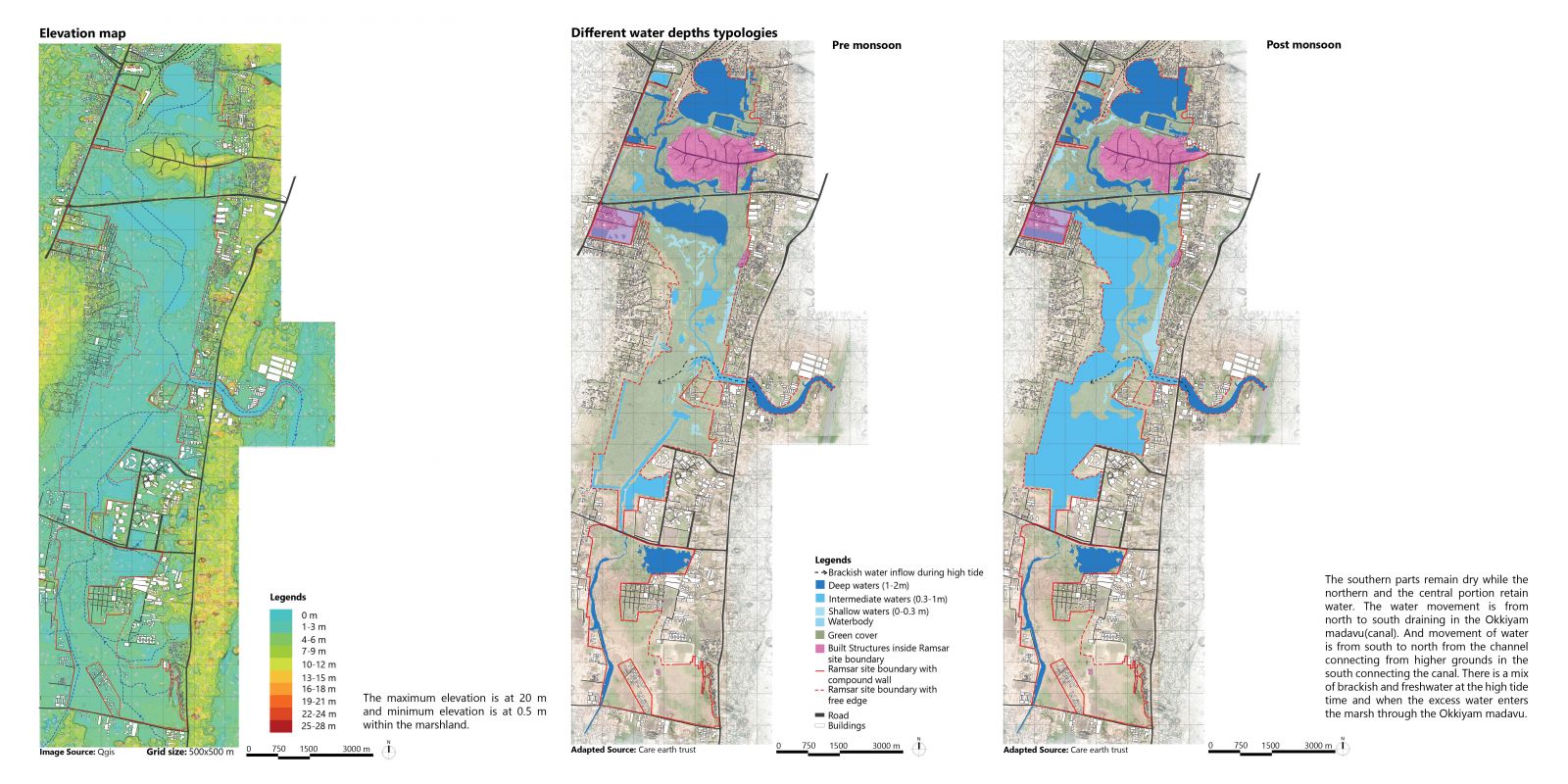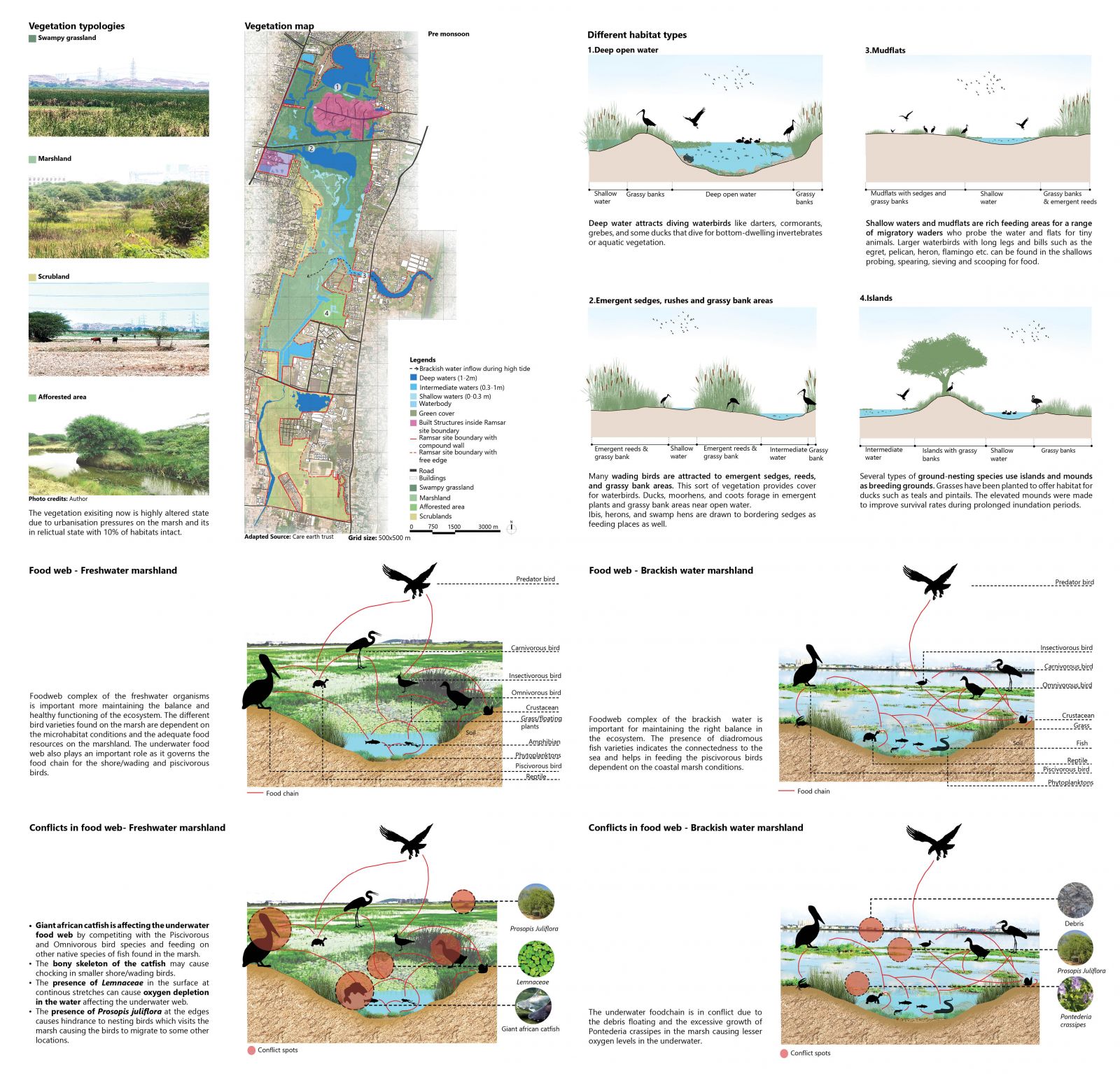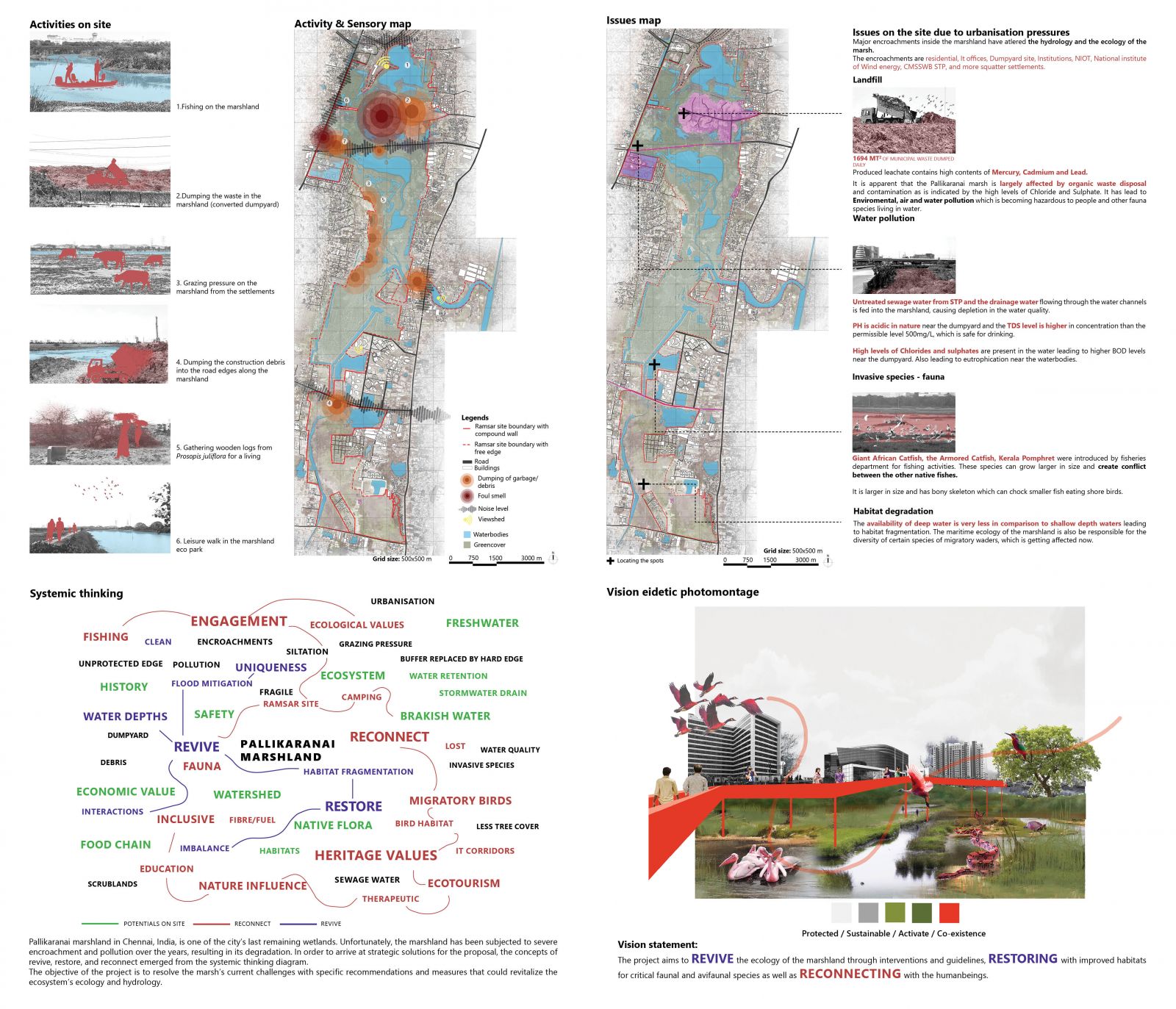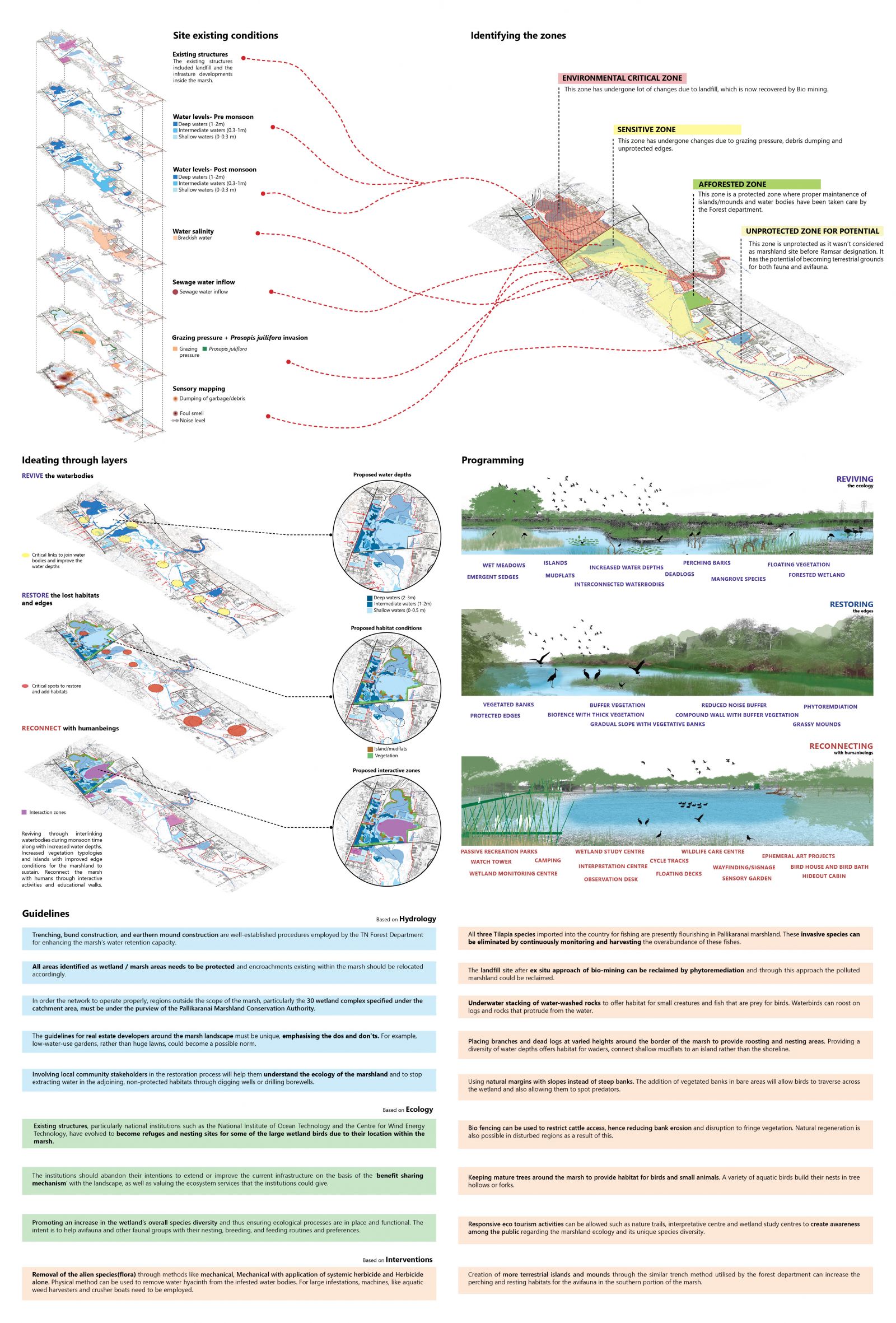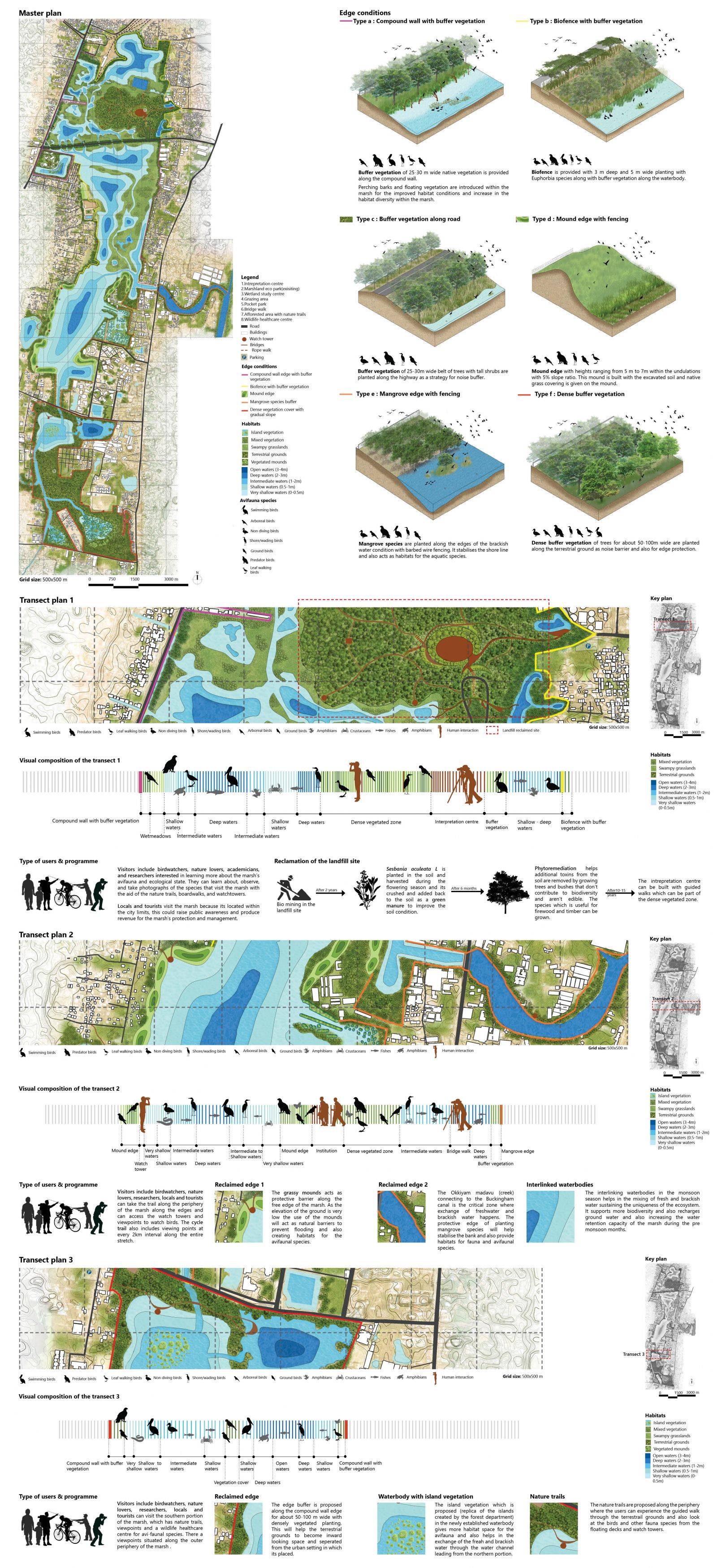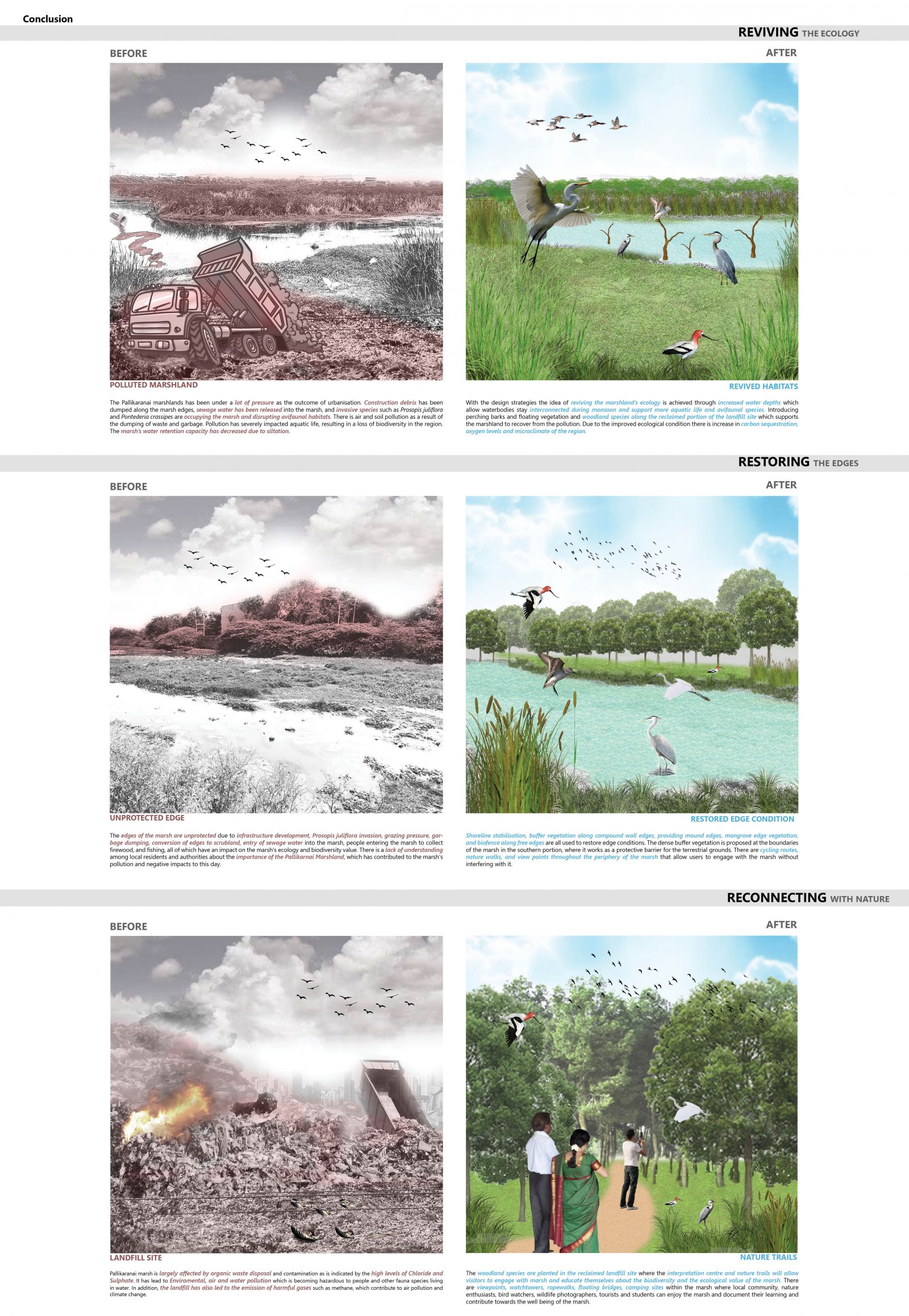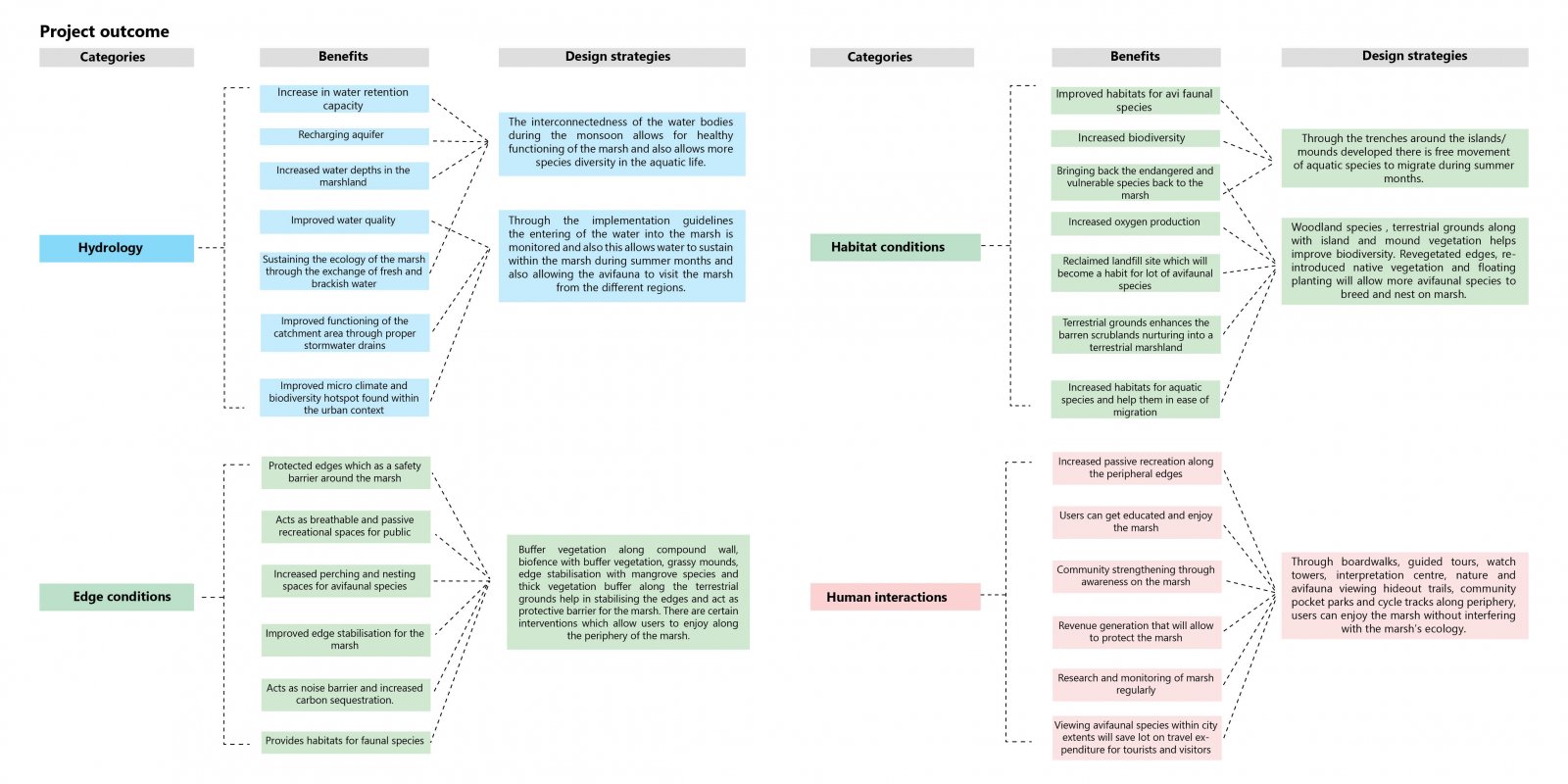Your browser is out-of-date!
For a richer surfing experience on our website, please update your browser. Update my browser now!
For a richer surfing experience on our website, please update your browser. Update my browser now!
Pallikaranai marshland is a freshwater and partly saline marsh located in Chennai, India, along the Coromandel coast. It is the city’s only remaining wetland ecosystem and it performs a vital role in acting as a sponge, absorbing excess water and preventing flooding. It also recharges the groundwater table, serves as a carbon sink, and provides a habitat for 334 flora and fauna species. Pallikaranai Marsh drains over 250 km2 of south Chennai, containing 30 wetlands, via two outlets, Okkiyam Madavu and the Kovalam Creek and flows into the Bay of Bengal. This system of the watershed is disturbed by encroachments in the marshlands like road and infrastructure development, landfill dumping, sewage water intrusion and invasive species etc. Given that, it’s located on the fringes of the city, it has shrunk by more than 90% over the decades due to the urbanization pressure. It is currently a designated Ramsar site and is protected from further disturbances. The aim of the project is to revive the ecology of the marsh, restore the edge and habitat conditions of the marsh and help people reconnect with the marsh. The project’s vision was developed using systematic thinking, and its key phrases in the title “REVIVE|RESTORE|RECONNECT” served as the framework for the project as a whole. As project outcomes through implementation guidelines, design strategies and interventions were ideated as a proposal for the reviving of the marshland.
View Additional Work